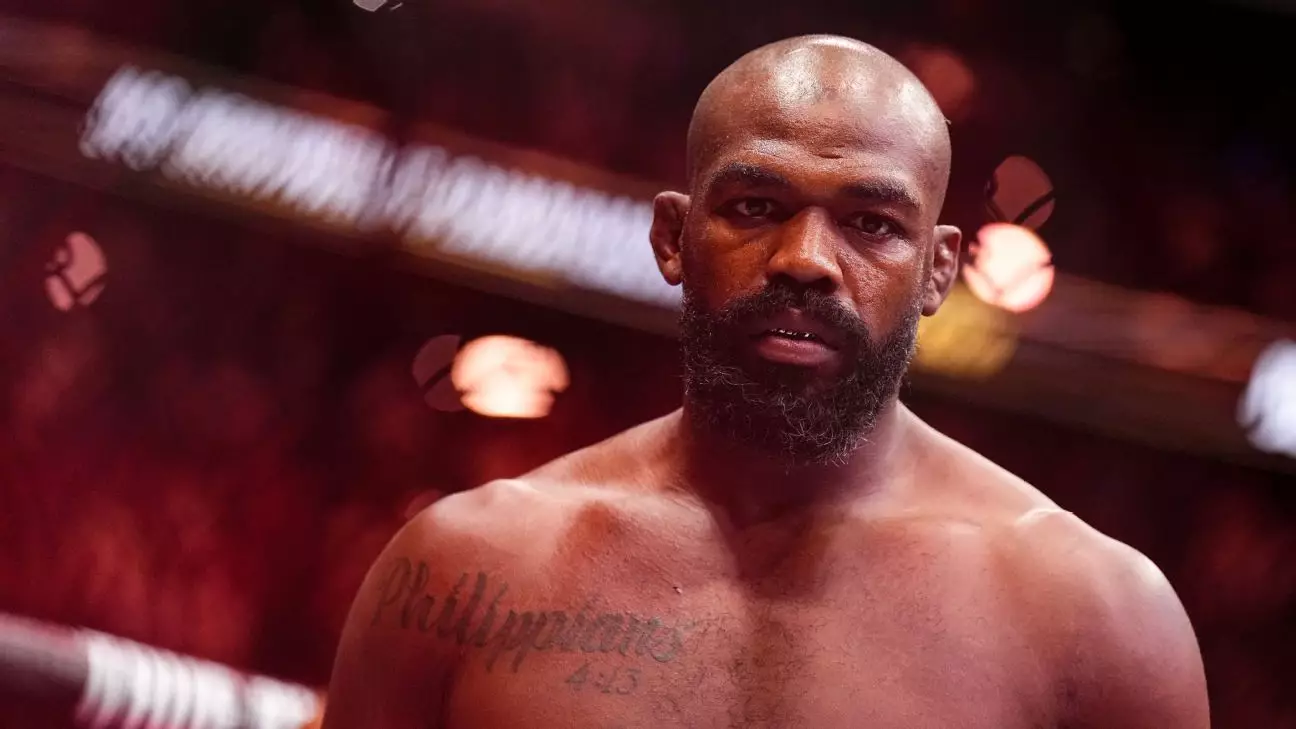The combat sports community reverberated with disbelief when UFC CEO Dana White announced Jon Jones’ retirement during a post-fight press conference in Baku, Azerbaijan. White’s demeanor suggested a mix of disappointment and irritation—emotions likely stemming from Jones’ notorious reluctance to adhere to what fans and promoters perceived as the conventional path. But was anyone really surprised at this strikingly anticlimactic exit? As one contemplates the complexities of Jones’ career, it’s impossible to overlook what makes him the most selfish yet talented athlete in UFC history—an intricate blend of brilliance and ego.
Jones’ decision to retire came at a time where the anticipation for a heavyweight title unification bout between him and interim champion Tom Aspinall had reached a fever pitch. Yet, instead of taking on his young challenger, Jones opted for a seemingly safer bout against the aging Stipe Miocic, a decision that notably trivialized the aspirations of the next generation. Such choices raise pertinent questions: Is it all about legacy for Jones, or is it primarily about preserving his own status at the top?
Selfishness as a Double-Edged Sword
In the world of mixed martial arts, the attributes that distinguish a champion can often include ruthlessness and a steely self-focus. In Jones’ case, this selfishness has proven to be both his greatest weapon and an enduring source of controversy. Several key moments underline this duality, such as when Jones leapfrogged his Jackson Wink teammate Rashad Evans to fight Mauricio “Shogun” Rua for the light heavyweight title. This decision, rooted in opportunism, not only strained professional relationships but also ignited backlash from fans and fellow fighters alike. Evans labeled Jones as “fake,” accusing him of acting for his own benefit at the expense of loyalty.
The infamy surrounding decisions made by Jones extends beyond personal betrayals; it encapsulates a pattern of behavior where his desires eclipsed the collective commitments of the sport. Take, for example, the unforgettable debacle surrounding UFC 151—a card that was ultimately canceled because Jones refused to fight Chael Sonnen on short notice. White’s vocal anger towards Jones, which echoed through the fight community, revealed how deeply intertwined Jones’ decisions were with the livelihoods and reputations of others in the sport.
The Calculated Risk of Postponement
While many critics heaped scorn upon Jones for his self-serving decisions, it’s peculiar to note that this approach has often paid off for him. Historically, champions who rush into bouts without ample preparation can find themselves subject to unforeseen injuries or losses, which invariably tarnish legacies. Jones has carefully curated his fighting schedule, competing only nine times in the last decade—a potentially strategic move to preserve his undefeated record.
However, such infrequency raises a critical question: Is Jones avoiding high-stakes fights to maintain his status as the “Greatest of All Time,” or does this suggest a more profound fear of vulnerability? For all the accolades that have graced his career, the glaring absence of marquee matchups against contemporaries like Francis Ngannou and Tom Aspinall casts a long shadow over his accomplished legacy. Could it be that Jones may have let strategic caution, guided by his uncompromising self-aggrandizement, dictate his actions?
The Impression of Control: Levin the Odds
When scrutinizing the art of negotiation within MMA, Jones has nailed the balance between maintaining leverage and taking calculated risks. His retirement announcement was not merely a departure; it was a tactical maneuver in a chess game where he remains three moves ahead. White’s comments about Jones’ latest departure hinted that, should he choose to return, Jones stands ready to call the shots in future negotiations. The term “retirement” can serve as a powerful tool to manipulate perceptions and demands—an assertion that Jones has leveraged skillfully throughout his career.
This dynamic ultimately distills into an exploration of power in the sport. While some fighters dutifully follow the established protocols, Jones has shattered the mold, making decisions that prioritize his own aspirations over the expectations of fans, management, and fellow fighters. It raises an interesting dichotomy: in a realm where discipline and respect for one’s opponents traditionally reign supreme, Jones stands as a testament to how selfishness, when used cleverly, can yield maximum reward.
The Weights of Legacy: What Lies Ahead?
With his unexpected retirement, Jones leaves fans pondering the future of a mixed martial arts landscape shifting toward younger contenders like Aspinall. While some perceive this as Jones vacating his throne, others acknowledge it as a strategic retreat designed to maintain his reputation. Should he choose to fight again, the question will not solely be whether he can outperform future challengers, but whether the very fabric of MMA has changed in a way that leaves his legacy secure.
Without a definitive answer to whether this retirement will be a prolonged absence or a fleeting moment, fans and analysts will undoubtedly scrutinize every potential return matchup for signs of vulnerability. It appears that for Jon Jones, the narrative will continue to unfold on his terms, unfurling layers of complexity that have characterized both his life and career. As he stands at the crossroads of destiny and decision, the world can only wait—holding its breath for the compelling enigma that is Jon Jones.


Leave a Reply